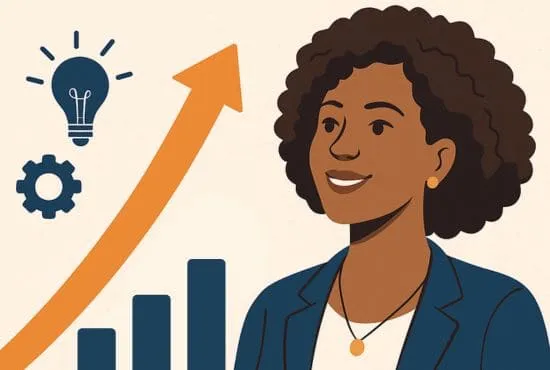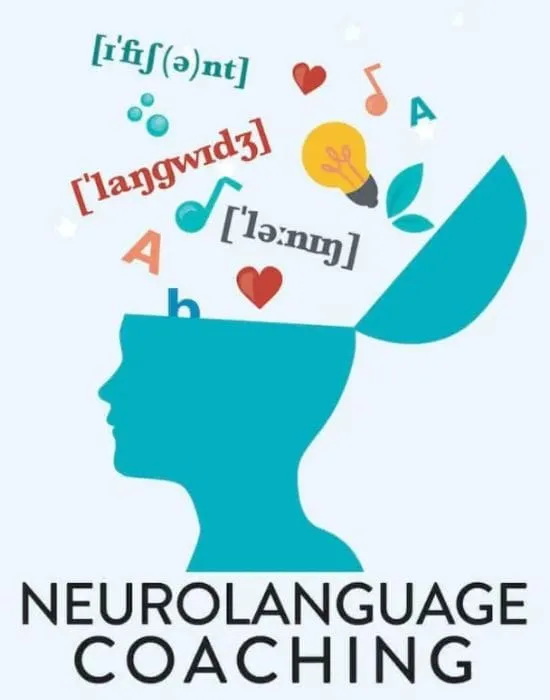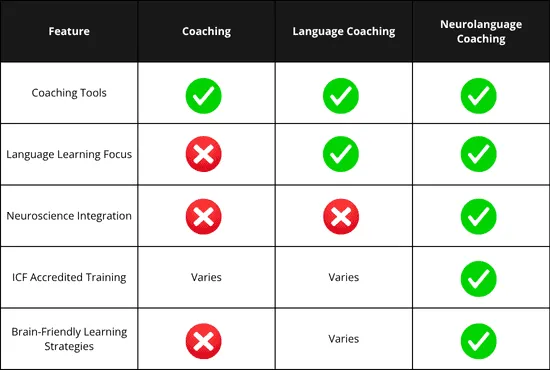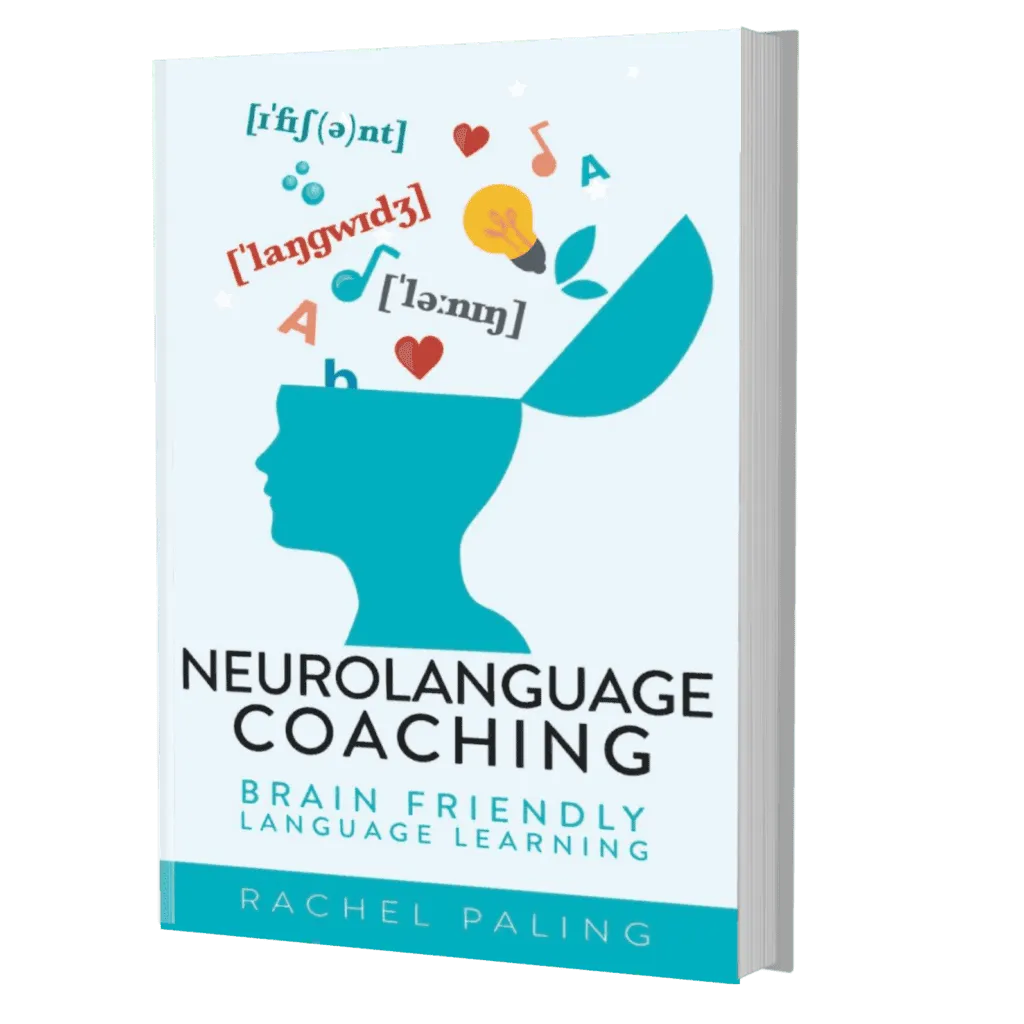Coaching, Language Coaching & Neurolanguage Coaching®

Understanding the Differences That Matter
As the coaching landscape continues to grow, many educators, trainers, and language professionals are asking:
“What’s the difference between coaching, language coaching, and Neurolanguage Coaching®?”
It’s a great question – and one that’s more relevant than ever.
Let’s break it down.

🎯 Coaching: A Profession That Powers Change
Coaching is now used across every industry and life domain – from leadership development to personal growth. At its core, coaching is a process that helps people:
🚀 Achieve specific goals
🚀 Overcome barriers
🚀 Discover new perspectives
🚀 Tap into their own potential
There’s no one-size-fits-all definition. However, professional coaching bodies like the ICF (International Coach Federation), EMCC (the European Mentoring and Coaching Council) , and Association for Coaching have established ethical guidelines, competences, and standards for the profession. As we carry the accreditation of the ICF, we follow their ethos relating to coaching:
✅ A coach does not give advice, teach, mentor, or counsel.
✅ A coach facilitates, listens deeply, and helps the client arrive at their own solutions.
This can be applied to any context – life, business, wellness – and is especially powerful when paired with a professional’s niche expertise.

🗣️ Language Coaching: Merging Language Expertise with Coaching Skills
So where does language coaching fit in?
A language coach is typically someone with expertise in language teaching or training who uses coaching to facilitate language learning. This could include:
✅ Applying coaching tools and models
✅ Shifting from instructive to reflective conversations
✅ Creating a more personalized, goal-oriented experience for the learner
In the language market nowadays, there are many different types of “language coaches” with a distinct approach where the language professional acts as a facilitator, empowering learners to take control of their own learning process.
👩 A language teacher who just uses the word coach following the market trend and following the philosophy of the sports coach, with an empowering style and possibly a directive approach.
🧑🏾🦳 A language teacher with many years of experience and expertise as such, who takes on the word coach to demonstrate that experience. These are highly qualified language experts with an intuitively developed coaching style but normally no coaching training from an institution or body that standardises professional coaching.
🧑🏼🦱 A language teacher who undertakes a life coaching qualification from an institution or body that standardises professional coaching and then applies this knowledge to the language learning process. Here, there may be a grey line between life coaching and language learning and it may be necessary to really clarify with clients whether this is a “life coaching” focus or a “language coaching” focus.
👱🏽♀️ A language teacher who takes a language coaching course, which offers knowledge of the techniques and models from life coaching using these to troubleshoot and enhance the learning process. These courses may carry certifications and CPDs (continuous professional development) for teachers but often are not accredited by an institution or body that standardises professional coaching. (Extract from “Language Coaching in Action” Rachel´s 3rd book.)

🧠 Neurolanguage Coaching®: Brain-Friendly Language Learning
Neurolanguage Coaching® takes language coaching to a whole new, unique level by adding the “neuro”: Neuroscience and neuropsychology.
This method was developed to create a structured, clearly defined approach that implements emotional intelligence and neuroscience to language learning that is:
✅ Grounded in coaching principles and ethics
✅ Integrates the ICF coaching competences and standards
✅ Deeply rooted in emotional intelligence and the neuroscientific understanding of how the brain learns
Neurolanguage Coaches are trained not only in coaching competences, but also in:
🧠 How the brain functions and reacts during learning
🧠 How stress and emotional triggers can impact memory formation and retention
🧠 How to create brain-friendly learning environments
🧠 How to calm the “affective filter – emotional and psychological barriers” (Krashen) and optimize focus, flow, and retention
It’s more than using coaching techniques. It’s a powerfully structured way of learning to deliver language transformation in a way that respects the brain, the person, and the process..

💡 Why This Clarity Matters
Nowadays, with so many people calling themselves a “coach,” clarity is essential. For learners. For educators. For the industry.
By understanding and communicating the differences, we ensure:
✅ Clients receive the right support for their goals
✅ Language professionals set clear expectations and pricing
✅ Everyone benefits from more aligned and effective coaching relationships
🧩 Summary: What Sets Neurolanguage Coaching® Apart?

Find out more about Coaching, Language Coaching & Neurolanguage Coaching® by reading the second edition of Rachel’s book – Neurolanguage Coaching: Brain Friendly Language Learning – click here

Get a copy of the Neurolanguage Coaching: Brain Friendly Language Learning book
Want to learn more about Neurolanguage Coaching?
Get Rachel’s book and expand your knowledge!
Updated for 2025 – 2nd Edition now available
🎓 Ready to Learn More?
Deep dive into Neurolanguage Coaching by reading the second edition of Rachel’s book – Neurolanguage Coaching: Brain Friendly Language Learning – click here
Explore our accredited courses and start your journey to becoming a certified Neurolanguage Coach® – click here
Take the FREE Introduction to Neurolanguage Coaching E-Course to get a taste of what it is all about! – click here
Register for the “Why is Neurolanguage Coaching Different?” Webinar with Rachel Paling – click here